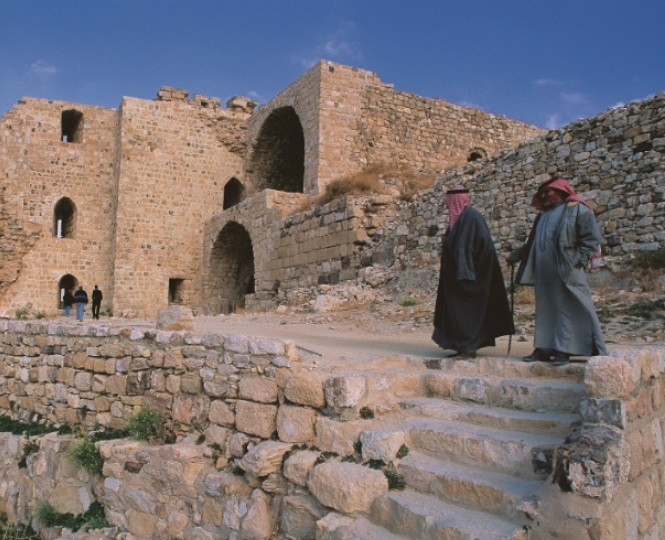The city of Al Karak has a unique local culture and heritage that has been passed down for generations. Al Karak and its surrounding villages still practice traditional methods of bread making using clay ovens, “tabun”, to make bread, while sheep farming to produce various local cheeses such as milk, jameed, and other dairy products is still common. The olive harvest continues to produce tanks of olive oil used among families and sold to market.
Meanwhile, Al Karak stands out from other towns across Jordan as it is deeply rooted in its Christian heritage, with historical remnants as well as the present-day Christian community, dating back to the Byzantine period. Al Karak has produced notable figures, including prime ministers, military commanders, and politicians. It once held the Guinness Record for the longest-serving city mayor globally, with Pasha Dlewan Majali serving for an impressive 57 years. One of the oldest secondary schools in Jordan, established in 1899, is located in Al Karak.

Immerse yourself in Al Karak's culinary scene, where traditional methods of food preparation are passed down through generations. Jameed is a dried yoghurt that is the central ingredient of the national dish of Jordan, “Mansaf”. Jameed from Karak is considered to be the best in Jordan and a symbol of national pride. Mansaf is said to originate from Al Karak and holds immense cultural significance, reflecting social cohesion and identity.
Experience the rich flavors of Mansaf, served on a large round platter with shrak flatbread, rice, and lamb cooked in spices, topped with the essential jameed. Whether you choose to eat it traditionally with your right hand or opt for a plate and spoon, Mansaf embodies the essence of Al Karak's culinary heritage.
Come, explore the ancient marvels and cultural richness of Al Karak – a journey through time awaits you in this enchanting city in the heart of Jordan.